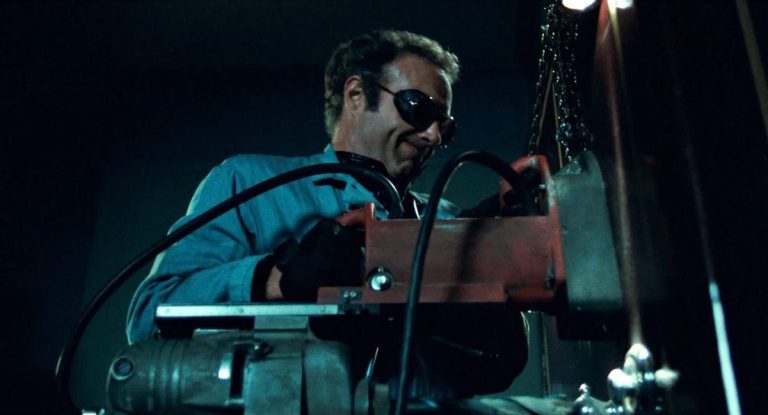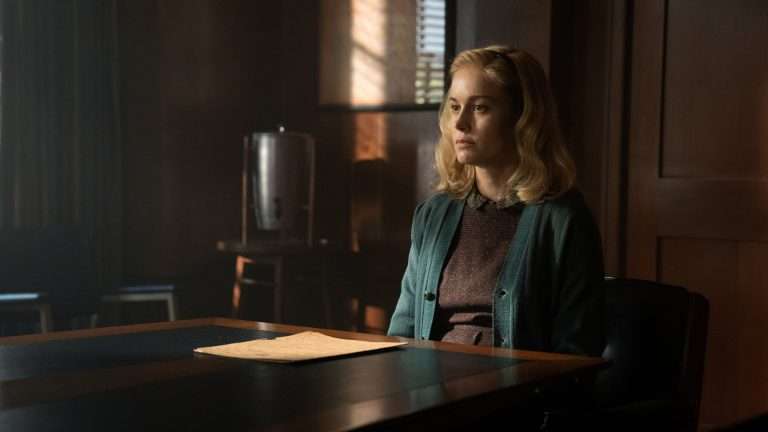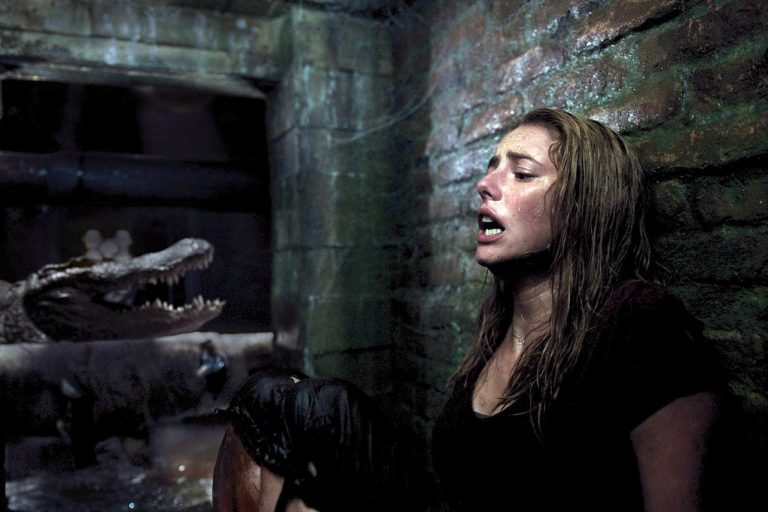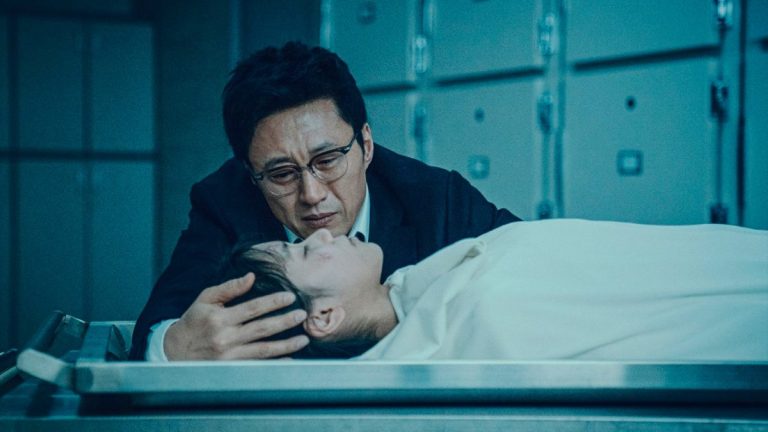Juanpis González: “The People’s President” (Original Title: Juanpis González: El presidente de la gente) is a 2024 film starring Alejandro Riaño, Carolina Gaitán, and Germán Jaramillo. The plot revolves around Juanpis Gonzalez, a rich man-child who becomes his country’s president using his grandfather’s wealth and connections not to serve the nation but to line his own pockets and cater to the select few.
A scathing satire, the film mercilessly exposes the corrosive influence of corruption on today’s political landscape, where the chasm between the opulent elite and the impoverished masses widens with each passing day. It’s a world where leaders line their pockets with fake projects, squeeze every last penny out of the struggling masses, and cook the books to keep their wealthy pals tax-free. This comedy doesn’t just entertain but also makes you think about who’s really in charge of our future. It’s a sharp, witty reflection on the mess we’re in and a nudge to question the power players pulling the strings.
Juanpis González: The People’s President (2024) Plot Summary & Movie Synopsis:
If you had billions in the bank, you might splurge on designer clothes, luxury vacations, fine wines, and fancy purses. Some people would use that fortune to help others and give their families a better life. However, the protagonist of this film, Juanpis, has a different plan – one that mirrors Pablo Escobar’s greatest unfulfilled wish. Juanpis doesn’t just want to live large but enjoys an almost mythical dream that sets him apart from the typical wealthy.
Juanpis hails from a family that’s swimming in cash. They have more money than they could ever spend. Since money breeds more money and connections, Junpis decides to leverage his wealth and power to become the president of Chile, especially after the last president got booted out on money laundering and impeachment charges. Nevertheless, as soon as he takes office, Junpis becomes a lightning rod for public anger. The citizens believe he’s rigged the election with his deep pockets and elite connections. Every day, the streets are filled with riots and the resounding chant: “Junpis is a fascist and doesn’t represent us!”
What does Juanpis do after taking the office?
On the other hand, Junpis promises sweeping changes to heal the country. This involves tackling poverty head-on and ensuring everyone is treated well and taken care of. But it’s painfully obvious that Juanpis is more interested in enjoying the power of the presidential chair than actually leading. His first move as president is trying to woo Camila to leave the opposition and join his party. Unfortunately for him, Camila says no. She believes that she’s better off with the other half of a democratic administration: the opposition.
As people predict, the moment Juanpis takes the reins of the country, he starts doing whatever he wants. Days are spent playing golf and drinking with his rich friends and business partners. On weekends, he funnels money from various government projects into his own pocket. He steals 18 billion that could’ve funded 200 schools for decades. Juanpis starts opening factories, golf clubs, and buildings under his name, paving over jungles, rivers, and wetlands, turning the country into a concrete jungle in the name of “connecting the nation.” In addition, he pockets 500 million that could’ve revolutionized healthcare, making it better and more affordable for all. Simply put, he’s sucking the country dry and lining his pockets.
The situation has become so dire that the national parliament is a complete joke. People order takeout and munch away while a few concerned senators argue for decent reforms. Juanpis also spends 500 billion on expanding the country’s military might, all while the nation’s farmers are struggling and begging for reforms that can give them control over their own produce.
Why does Juanpis turn against his grandfather?
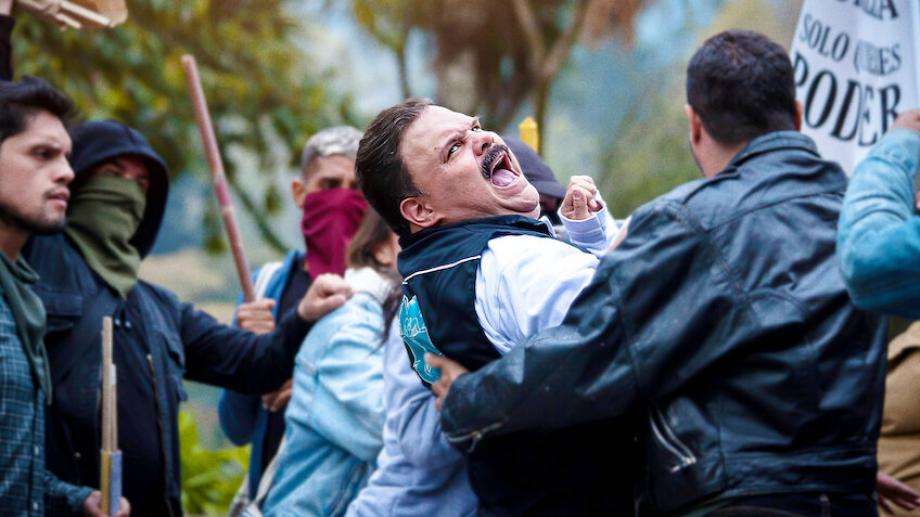
Later, it’s revealed that Juanpis is just a pawn who gets to pocket a measly 4% from every corrupt deal. This infuriates him, as he believes he deserves way more because it is his face in the president’s office. This angers him, and he decides to prove to Pambo that he is the real power player. Juanpis buys a Venezuelan fertilizer company using the country’s money. At this time, Venezuelan politics don’t align with Colombia’s, and getting involved with them sends a terrible message. But Juanpis doesn’t care about diplomacy or optics and just wants to see the profits increase. He is also convinced that the best way to tackle food insecurity is by forcing farmers to grow more, so he bulldozes ahead with his plans.
Juanpis strikes a deal with Camila and promises to pass the Agrarian reform if she convinces farmers to buy fertilizers from his company. When his grandfather, Pambo, the head of the association that’s been bleeding the country dry by catering to the rich and powerful, finds out, Juanpis declares that he’s playing by his own rules now. He fires most of his cabinet and appoints new members who will give him more control over the party and the nation. This is done to ensure that the Agrarian reform passes on his terms.
But why is the association so dead-set against this bill? The answer is simple and revolves around control. The bill demands the government hand over the land on which farmers grow their produce to them. Currently, these lands are under the grip of politicians and big companies. Losing them would be like losing a golden goose. Juanpis wants to see the bill passed and pulls out all the stops. He offers politicians money and promises to fund their campaigns to get them on his side. Meanwhile, his grandfather is also busy bribing everyone to vote against the bill when the time comes. Against all odds, Juanpis’ plan works. The bill is passed, disappointing Pambo and the association.
Juanpis González: The People’s President (2024) Movie Ending Explained:
How does Camila become the President?
Thanks to some leaked documents, rumors start swirling that the Juanpis administration is corrupt and is siphoning money under the guise of government projects. This leak is orchestrated by Juanpis’ furious grandfather, who wants payback for the agrarian bill. To protect Juanpis, his loyal friend and secretary, agrees to take the fall and resign. In an attempt to control the damage, Juanpis has to cancel all ongoing contracts for investigation. Unfortunately, the damage is already done. Now, half the country has lost faith in his administration. While some praise Juanpis for the agrarian bill, others curse him, calling him a traitor to the nation.
Being called a traitor is the least of Juanpis’ worries right now. He has no idea what’s about to hit him. His grandfather has gone full throttle and is orchestrating a smear campaign to obliterate Juanpis’ reputation beyond repair. He’s also strong-armed companies into jacking up food prices and cutting supply to create a shortage. With the dollar about to skyrocket, Colombia will head into a series of inflation, turning the nation against Juanpis. This will lead to nationwide riots and unrest. The old man plans to use the protests as a smokescreen to storm the office and kidnap Juanpis, automatically handing all the power to the vice president. Since the vice president is a puppet of the association, he’ll follow orders without question.
Juanpis eventually gets caught when Ivan double-crosses him and delivers him straight into the grasp of his grandfather. The old man tears into Juanpis and calls him a coward, reminding him that he’s delusional if he thinks he’s truly running the country. The grandfather agrees to spare Juanpis—just as long as he promises to stay out of trouble. With that, Juanpis exits the country and takes a much-needed hiatus. With Juanpis out of the picture, the path is clear for the vice president to take control, but Juanpis has a few tricks up his sleeve. Before vanishing, he signs a decree appointing Camila as the new vice president, who will step up as acting president until Juanpis decides to come back.
In the weeks that follow, the situation cools down because, unlike Juanpis, Camila is known for her integrity and commitment to serving everyone, not just the select few.
